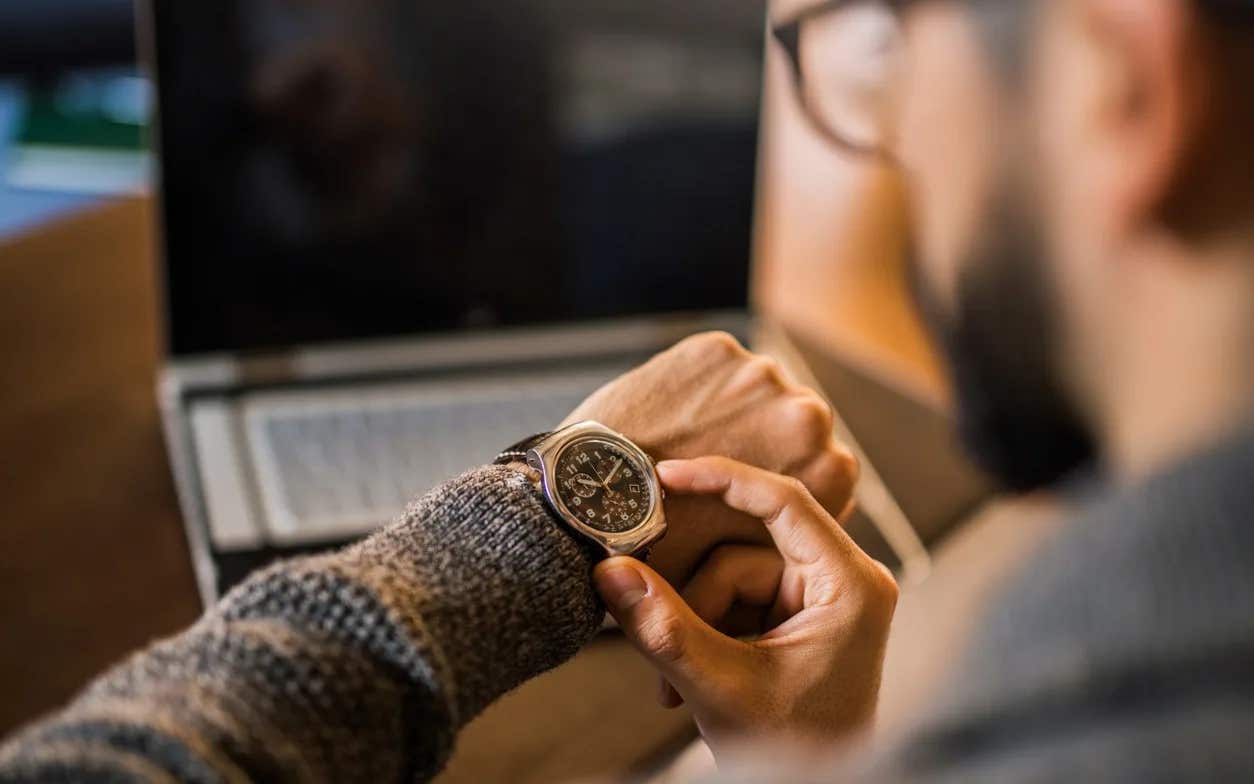Groundbreaking study reveals why time appears to move faster as we age
Psychologists and neuroscientists have studied for years how our perception of time changes and evolves throughout our lives

The difference in perception isn’t just anecdotal; there’s a scientific basis for why time seems to speed up as we get older. (CREDIT: CC BY-SA 3.0)
For many, the last year might have felt like it flashed by in an instant. It’s as if January was just here. However, for children, last year’s holiday season can seem like a distant memory from ages ago. This difference in perception isn't just anecdotal; there's a scientific basis for why time seems to speed up as we get older.
Psychologists and neuroscientists have studied how our perception of time changes throughout our lives. Cindy Lustig, a psychology professor at the University of Michigan, explains that our sense of time is deeply influenced by our perspective and memory.
“Our perception of days, weeks, years, and that kind of time seems to be especially influenced by our perspective: Are we in the moment experiencing it, or are we looking backward on time?” Lustig notes. This means that how we perceive time can depend on whether we are living through the moment or reflecting on past events.
Memory's Role in Time Perception
Memory plays a crucial role in how we perceive the passage of time. For an 8-year-old, a week represents a significant chunk of their life experience. In contrast, for an 80-year-old, a week is a much smaller fraction of their life, contributing to the feeling that it went by quickly.
Looking back, older adults often find that months or even years seem to have flown by, despite individual days possibly feeling slow. Lustig explains, “When you’re looking back, the less rich your representation is, the more it’s going to seem like the time went by quickly.” This means that if our days are filled with repetitive routines, they blur together in our memory, making time seem to pass faster.
Routine and Its Impact on Time
Our brains tend to consolidate time when our days are similar. For someone in their 80s with a consistent daily routine, years can blend together, making them feel shorter. Conversely, new and exciting experiences help to create distinct memories, making the days and months feel longer in retrospect.
Adrian Bejan, a professor of mechanical engineering at Duke University, supports this view with his research on time perception. “Our brains are designed to record change,” Bejan explains. Children, with their constantly changing activities and new experiences, perceive time as plentiful because they pack a lot into each day.
Related Stories
Adults can experience a similar expansion of time by introducing new activities into their lives. Lustig notes that when we reflect on periods filled with diverse experiences, they seem longer because of the richness of our memories.
Bejan also highlights how our brain's processing of visual information affects our sense of time. As infants and children, our brains are bombarded with new images, making time feel expansive. As we age, the frequency of new visual experiences decreases, leading us to perceive time as moving faster.
This decrease in new visual stimuli contributes to the feeling that time speeds up as we grow older. Physiological changes in our brain's ability to process images also play a role, reinforcing the idea that time seems to accelerate with age.
While we can’t literally slow time, there are ways to make it feel like it's moving more slowly. Bejan suggests breaking out of routine and seeking new experiences as a way to stretch our perception of time.
This might mean revisiting old hobbies, exploring new places, or learning something new. For example, taking a cooking class, learning a musical instrument, or traveling to a new city can enrich our lives and make our days feel fuller and longer.
Lustig emphasizes the importance of mindfulness and being fully engaged in the present moment. Research has shown that practicing mindfulness can extend our perception of time. Instead of multitasking, focusing on a single task can make that experience feel more substantial and lengthen our sense of the moment.
Ultimately, while we can’t control the ticking of the clock, we have significant influence over how we experience the passage of time. “None of us know how much time we have, but, interestingly, we do actually have a lot of control over how we experience that time,” Lustig says.
To make the most of our time, it's essential to embrace new experiences and stay present in the moment. By doing so, we can enrich our lives and potentially slow down our perception of time's rapid march.
Our perception of time is a complex interplay of memory, routine, and brain function. Understanding these factors can help us appreciate why time feels like it speeds up as we age and how we can make our days feel fuller and more memorable.
Note: Materials provided above by the The Brighter Side of News. Content may be edited for style and length.
Like these kind of feel good stories? Get the Brighter Side of News' newsletter.
Joseph Shavit
Head Science News Writer | Communicating Innovation & Discovery
Based in Los Angeles, Joseph Shavit is an accomplished science journalist, head science news writer and co-founder at The Brighter Side of News, where he translates cutting-edge discoveries into compelling stories for a broad audience. With a strong background spanning science, business, product management, media leadership, and entrepreneurship, Joseph brings a unique perspective to science communication. His expertise allows him to uncover the intersection of technological advancements and market potential, shedding light on how groundbreaking research evolves into transformative products and industries.



